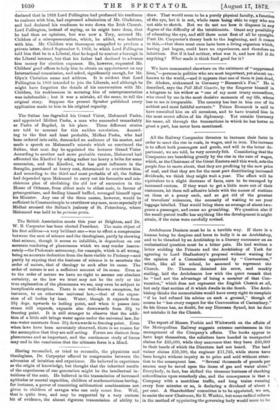as Pasha of Bagdad, in his place. Three different stories
are told to account for this sudden revolution. Accord- ing to the first and least probable, Midhat Pasha, who had been ordered into exile, demanded an audience of his master, and made a speech on Mahmoud's misrule which so convinced the Sultan, that next day he appointed the lecturer Grand Vizier. According to another and more probable version, Mahmoud had affronted the Khedive by asking rather too heavy a bribe for some concession, and the Khedive, who has great influence in the Seraglio, purchased at heavy cost, determined to overthrow him. And according to the third and most probable of all, the Sultan had depended upon Mahmoud to carry out his favourite and mis- chievous plan of abolishing the old law of succession in the House of Othman, from eldest male to eldest male, in favour of primogeniture, and finding himself baffled, revenged himself upon his Minister. Any one of the three causes, however, would be sufficient in Constantinople to overthrow any man, more especially if Midhat aroused the Sultan's jealousy of St. Petersburg, where Mahmoud was held to be persona grata.


































 Previous page
Previous page